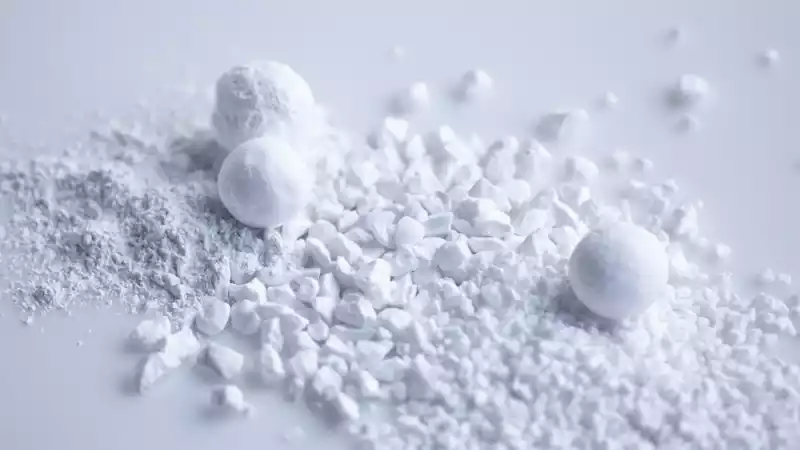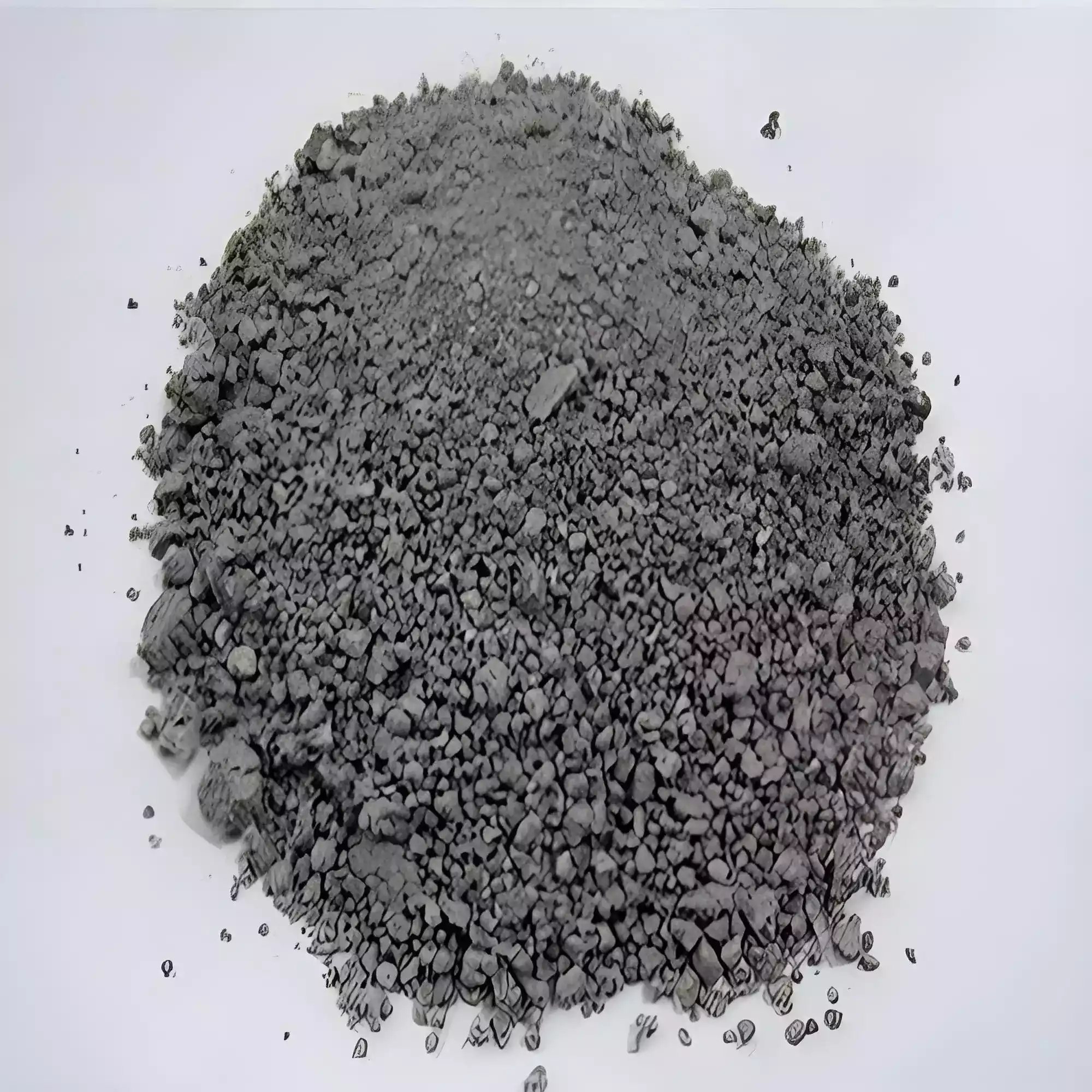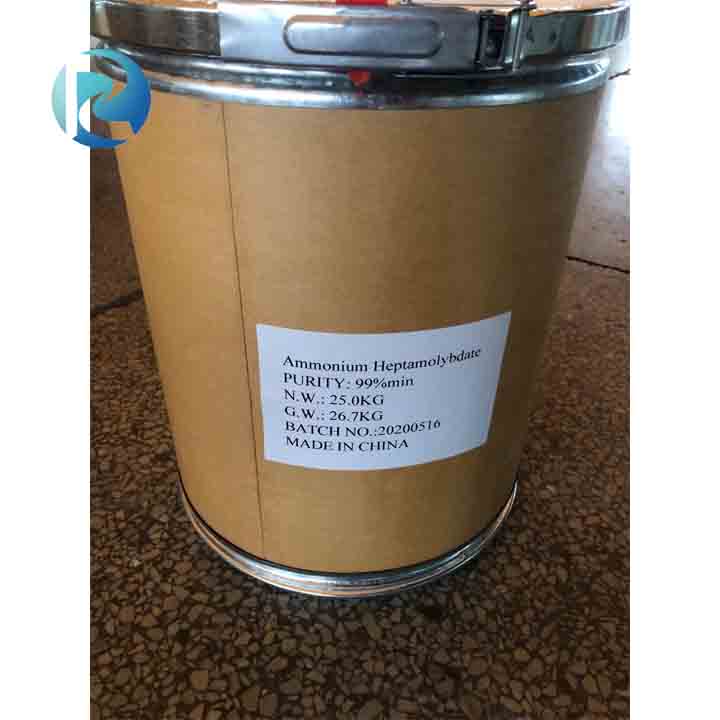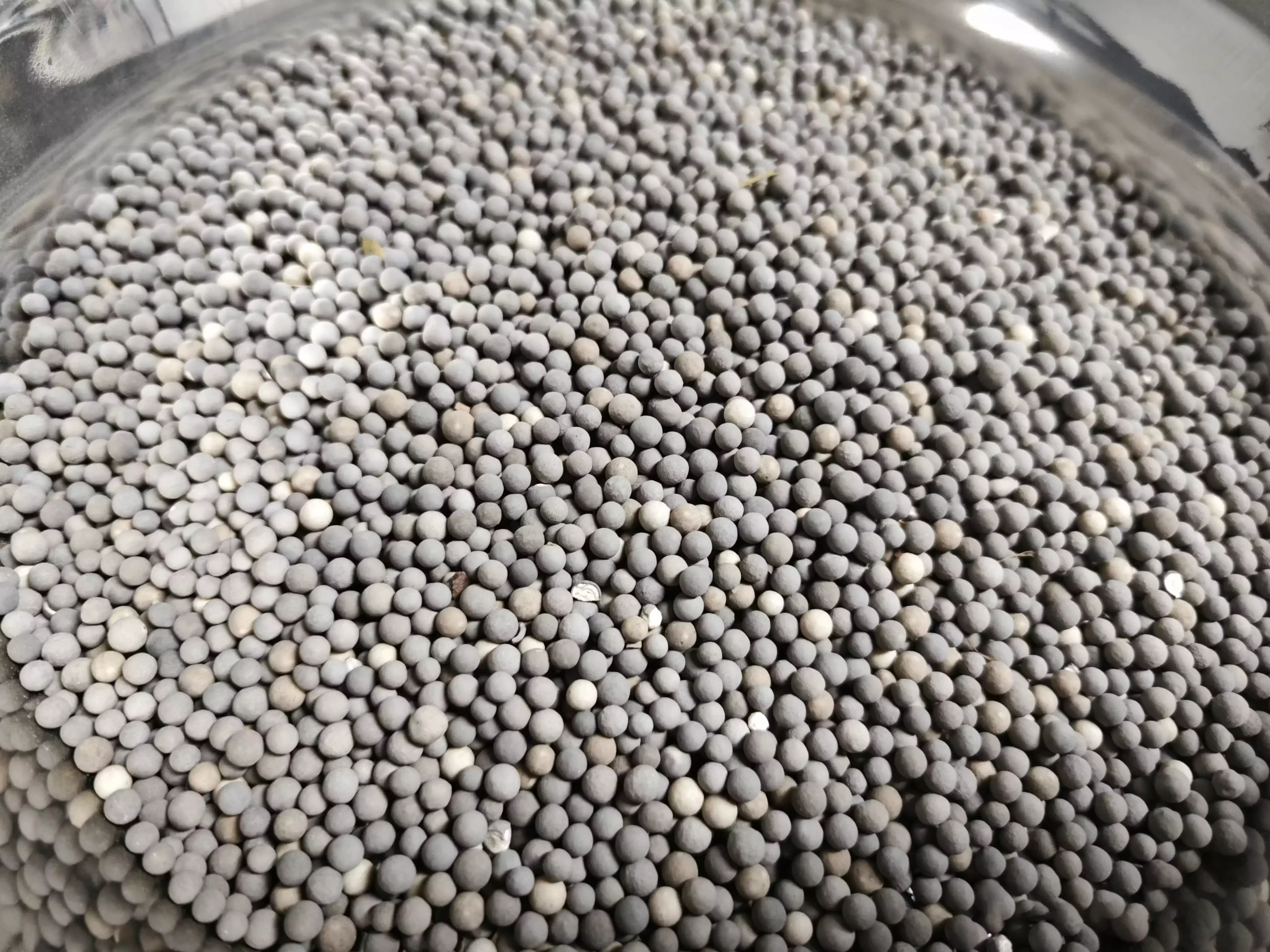![]()
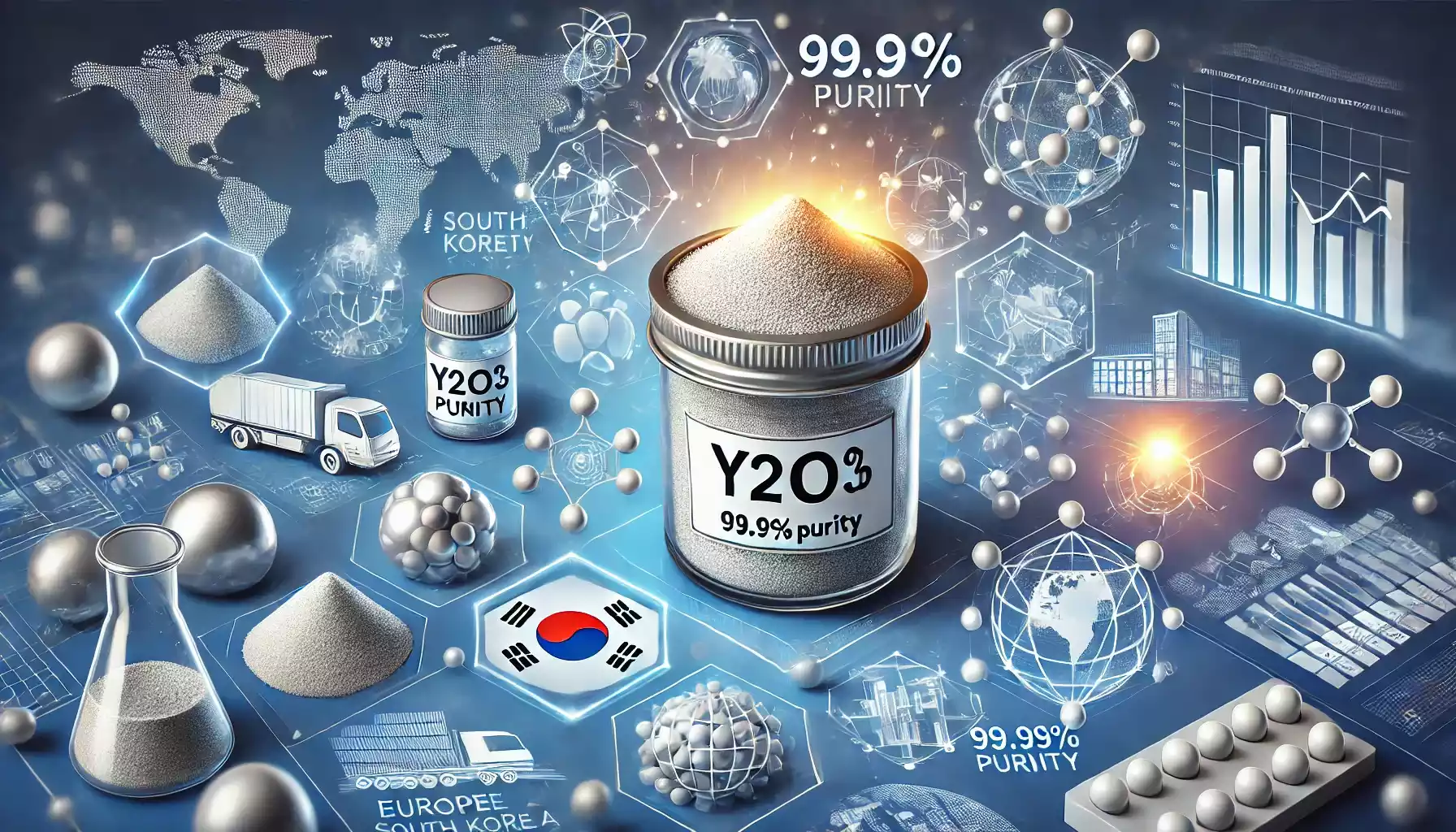
What is Yttrium Oxide used for?
Introduction to Yttrium Oxide
Yttrium Oxide (Y2O3) is a rare earth compound with broad applications across various industries due to its remarkable properties, such as high thermal stability, corrosion resistance, and excellent optical characteristics. Known for its use in ceramics, electronics, and advanced materials, Yttrium Oxide has become a vital component in modern technology. This article explores the diverse applications of Yttrium Oxide and its role in industries worldwide.
In this article, we will focus on answering the central question: “What is Yttrium Oxide used for?” The material’s versatility ensures it plays a crucial role in several fields, from lasers to display technology, ceramics, and even medical equipment.
Table of Contents
Yttrium Oxide Applications in Advanced Materials
Ceramics and Refractory Materials
Yttrium Oxide is widely used in ceramics, especially in applications requiring high thermal resistance. Due to its high melting point (around 2,410°C), it’s ideal for refractories that endure extreme temperatures. One of the key areas where Yttrium Oxide is indispensable is in the production of thermal barrier coatings for turbines and jet engines, where heat resistance is critical.
In addition, Yttrium Oxide-based ceramics are frequently found in the manufacturing of crucibles used in the melting of metals. The compound’s durability ensures these crucibles can withstand the high temperatures necessary to melt even the most refractory metals.
For companies looking to enhance heat resistance in their applications, Yttrium Oxide is one of the most preferred materials. Yttrium Oxide stands out in the refractory material market as it provides both functionality and cost-effectiveness.

Catalysts and Additives in Coatings
Another significant application of Yttrium Oxide is in catalysis. Due to its chemical stability and surface area, Y2O3 is an essential component of catalyst systems, particularly in petrochemical processes. Its ability to improve the efficiency of chemical reactions makes it invaluable in refining industries.
Additionally, Yttrium Oxide finds use in coatings, particularly as an additive to anti-corrosion and wear-resistant coatings. By integrating Yttrium Oxide into coating formulas, manufacturers can extend the lifespan of machinery and infrastructure by enhancing resistance to harsh environments, thereby saving time and money for companies in the long run.
Role in the Electronics Industry
Display Technology
One of the most famous applications of Yttrium Oxide is in the field of phosphors used in display technology. Specifically, Yttrium Oxide doped with Europium (Y2O3) is a key material used in the production of red phosphors for color television and computer displays. The material’s ability to emit red light when excited by an electron beam makes it an essential part of Cathode Ray Tube (CRT) technology, although its use has extended into more modern display systems like LED and OLED.
Lasers
Yttrium Oxide also plays a pivotal role in the production of solid-state lasers. When doped with rare-earth ions such as neodymium (Nd), Yttrium Oxide becomes a lasing medium capable of producing high-powered laser emissions. These lasers are utilized in various applications, including precision cutting, medical devices, and communications technology.
Applications in the Medical Field
Medical Imaging and Diagnostics
In the healthcare industry, Yttrium Oxide is used in medical imaging devices, specifically in X-ray intensifying screens. Its excellent optical properties allow for more effective imaging by enhancing contrast and brightness. This increases the efficiency of X-ray imaging systems while minimizing the amount of radiation exposure needed for diagnostics.
Additionally, Yttrium Oxide is used in cancer treatment. Specifically, Yttrium-90, a radioactive isotope of Yttrium, is employed in targeted radiotherapy, where it delivers radiation directly to cancer cells, reducing damage to surrounding healthy tissues. Yttrium-90’s effectiveness in combating certain cancers has made it a cornerstone of modern cancer treatments.
Rare Earth Magnets and Superconductors
Yttrium Oxide is critical in the manufacture of high-performance rare earth magnets. These magnets, often made from an alloy of neodymium, iron, and boron, are strengthened by the addition of Yttrium. Rare earth magnets are vital components in various devices, from wind turbines to electric vehicles and even consumer electronics like headphones and hard drives.
Moreover, Yttrium Oxide is essential in the production of high-temperature superconductors. These superconductors, which have the ability to conduct electricity without resistance at cryogenic temperatures, rely on Yttrium as one of the key elements in their construction. Superconductors have vast potential in fields like medical imaging (MRI machines) and energy transmission.
Future Prospects of Yttrium Oxide
As technology continues to advance, the demand for Yttrium Oxide is expected to grow. Its importance in sustainable energy solutions, such as electric vehicles and renewable energy infrastructure, ensures that Yttrium will remain a vital material for years to come. Emerging applications, including quantum computing and advanced biomedical devices, also suggest that Yttrium Oxide will find new roles in cutting-edge technologies.
The future of Yttrium Oxide lies in its adaptability and versatility. Companies that invest in the production or use of this rare earth material stand to benefit from the increasing global demand.
Internal Links and References
To explore more about Yttrium Oxide and its applications, please refer to the following resources:
- Learn more about Rare Earth Products and their various uses in industries.
- For detailed information on the production and properties of Yttrium Oxide, visit our dedicated Yttrium Oxide page.
- For insights into other high-quality chemical raw materials, check out our Product section.
FAQ
1. What is Yttrium Oxide used for?
Yttrium Oxide is used in a variety of industries, including ceramics, electronics (displays and lasers), medical imaging, and catalysts. It is especially valued for its thermal stability and optical properties.
2. Is Yttrium Oxide safe to use in industrial applications?
Yes, Yttrium Oxide is considered safe for use in industrial applications. However, as with all chemicals, proper handling and safety precautions should be followed.
3. Can Yttrium Oxide be used in medical treatments?
Yes, Yttrium Oxide, particularly its radioactive isotope Yttrium-90, is used in cancer treatment therapies. Additionally, it is used in medical imaging devices.
4. Why is Yttrium Oxide important in electronics?
Yttrium Oxide is crucial in electronics due to its role in phosphors for display technologies and as a material for high-performance lasers and superconductors.
5. How does Yttrium Oxide contribute to sustainable technology?
Yttrium Oxide is used in rare earth magnets and superconductors, which are integral to renewable energy systems and electric vehicles, contributing to more sustainable energy solutions.
Conclusion
In summary, Yttrium Oxide is an indispensable material in modern technology. From enhancing the efficiency of displays and lasers to contributing to medical advancements and sustainable energy solutions, its applications are diverse and far-reaching. With continuous innovation and demand for advanced materials, Yttrium Oxide is poised to remain a crucial component across multiple industries.
Tables
| Yttrium Oxide Applications | Industries |
|---|---|
| Ceramics, Coatings, and Refractories | Aerospace, Metalworking |
| Phosphors for Displays | Electronics, Displays |
| Solid-State Lasers | Medical Devices, Industry |
| Medical Imaging | Healthcare |
| Superconductors | Energy, Advanced Materials |
| Industry | Application of Yttrium Oxide |
|---|---|
| Aerospace | Thermal Barrier Coatings for Jet Engines |
| Electronics | Phosphors in Displays, Lasers |
| Healthcare | X-ray Imaging Devices, Cancer Treatments |
| Renewable Energy | Rare Earth Magnets for Electric Vehicles, Wind Turbines |
For more information on our chemical raw materials, visit our website at Honrel.

